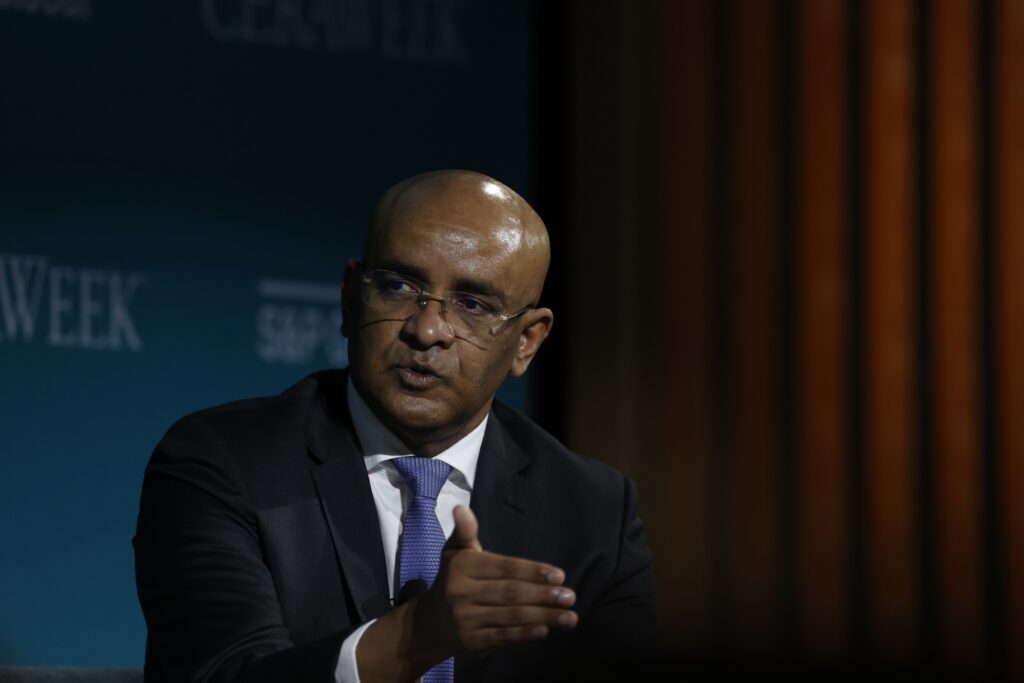Guyana is in no rush to sell the remaining 70 per cent of carbon credits it has but Vice President Dr. Bharrat Jagdeo says some of those credits could eventually be sold to bilateral partners.
The Vice President, while responding to questions from the News Room recently, said numerous potential buyers have engaged the government on purchasing these credits.
And he said, “… we are exploring those opportunities.”
Pressed for details, he confirmed that “bilateral sources” are among those interested in purchasing these credits.
Oil major Hess Corporation was the first company to buy into this scheme. This deal was signed in December last year, just one day after Guyana got special carbon credits issued to it. Hess bought about 30 per cent of Guyana’s carbon credits, essentially paying the country money to keep its forests intact.
But that was a voluntary arrangement. Jagdeo says Guyana is now keen on selling these carbon credits on the global compliance market.
“We’re exploring the other interests; we are exploring some compliance markets now and what it takes to get into those compliance markets.
“There may be some additional things required,” the Vice President said.

He, however, emphasised that the country is in no rush to sell 70 per cent of credits. The focus is now on revising national targets to phase out the use of harmful fossil fuels and working on reforesting areas that have been mined out.
A carbon credit is a kind of tradable permit or certificate that represents the removal of a certain amount of carbon dioxide from the environment. Guyana’s trees hold over 19 gigatonnes of carbon and the country has argued that it should be paid for keeping all of that carbon out of the atmosphere. Since carbon dioxide is said to be the principal greenhouse gas that harms the environment, it is tracked and traded like any other commodity, and hence the name carbon market.
And there are two types of markets for these credits: the voluntary and compliance market.
According to the United Nations Development Programme (UNDP), compliance markets are created because of regulatory requirements.
In some cases, these markets require emitters (for example, companies) to pay for those permits if they pollute the environment with too many harmful greenhouse gases like carbon dioxide.
The voluntary market, as its name suggests, allows emitters to freely purchase these credits in an attempt to offset their emissions.
Earlier this year, at the International Energy Conference and Expo, the Vice President said if companies or countries are forced to pay for forest-saving efforts, this small South American nation could possibly earn about US$5 billion





